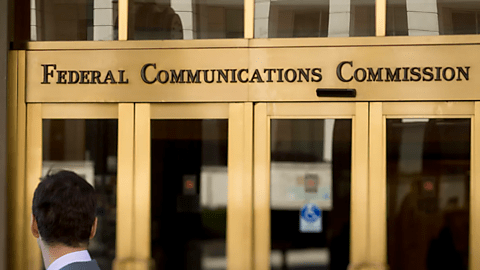Brent Skorup
The Federal Communications Commission (FCC) has been covertly and overtly regulating media content and media distributors since the agency was created in 1934. Namely, broadcast licenses and media mergers—like transactions involving satellite and Internet access companies—have been contested and litigated. There’s no escaping that media distribution and operation is political, and, ideally, Congress would eliminate some of its unclear media laws.
In the meantime, incoming FCC Chairman Brendan Carr and the other commissioners have some authority to minimize the secret government pressure on media companies and protect the free speech norms that Americans value.
Eliminate the News Distortion Rule and Other Legacy Content Rules for Media
Broadcasters today have largely learned to live with their content restrictions but the FCC should eliminate its legacy content rules. One priority should be to eliminate the news distortion rule. Uncodified and largely overlooked, the FCC rule against news distortion threatens a broadcaster’s ability to renew or transfer its license if the licensee is deemed to have deliberately engaged in news distortion, staging, or slanting. The FCC reaffirmed its commitment to enforce the news distortion rule several times, including in the summer of 2024.
There’s a precedent for refusing to enforce speech-chilling rules. The FCC formulated and enforced the notorious Fairness Doctrine from 1949 until the 1980s. But in 1985, the FCC voted 4–0 to not enforce the rule against a station, in part because of First Amendment concerns. The Fairness Doctrine slowly withered away after being weaponized and enforced for decades.
Stop Coercing Media Companies During Media and Telecom Mergers
Media and telecom companies must get the agency’s “public interest” blessing before a merger can be completed. This requirement for FCC permission and the agency’s vague, multifactor “public interest” standard gives the agency immense power over merging companies. As my friend and former FCC associate general counsel, Randy May, explains:
The Commission merely withholds approval of the merger until the parties come forward to propose conditions which the Commission has telegraphed in closed door negotiations that it would find acceptable to meet whatever public interest concerns that opponents, the FCC, and others have raised.
Through this coercive merger process, the FCC extracts nominally voluntary concessions from firms—including programming decisions and “net neutrality” compliance. In many cases, the FCC is legally barred from codifying or is unwilling to codify these policies through the normal regulatory process. To prevent these secretive negotiations, Chairman Carr should prohibit the agency and its staff from considering content and routine business decisions in its “public interest” determinations when approving telecom and media transactions.
Bring Economic Rigor to the Public Interest Standard
The “public interest” standard litters the Communications Act. Unfortunately, its meaning is constantly changing and depends entirely on who sits on the commission. Agency decisions become lengthy and protracted as parties typically hire all kinds of experts, lobbyists, and researchers to show why their application serves the public interest. The FCC should adopt a consistent definition for the “public interest.”
The agency’s Office of Economics and Analytics should examine how to bring some rigor and consistency to the “public interest” definition. For instance, when evaluating competing applications for an asset, competitive bidding should have predominant weight in a “public interest” determination. In other contexts, parties should be expected to articulate and estimate the “consumer welfare” effects of an agency decision.
The “consumer welfare standard,” while not perfect, is widely used in antitrust and economic literature and can bring far more economic rigor to currently chaotic and wasteful “public interest” determinations across the federal government.
This blog is part of a series on technology innovation and free expression.

